System of the Stars: Meet the therapist using video games to teach mental health
Ryan Earl, Ph.D., LMFT hosts Game Sessions with a Therapist — the most engaging, thoughtful stream on Twitch
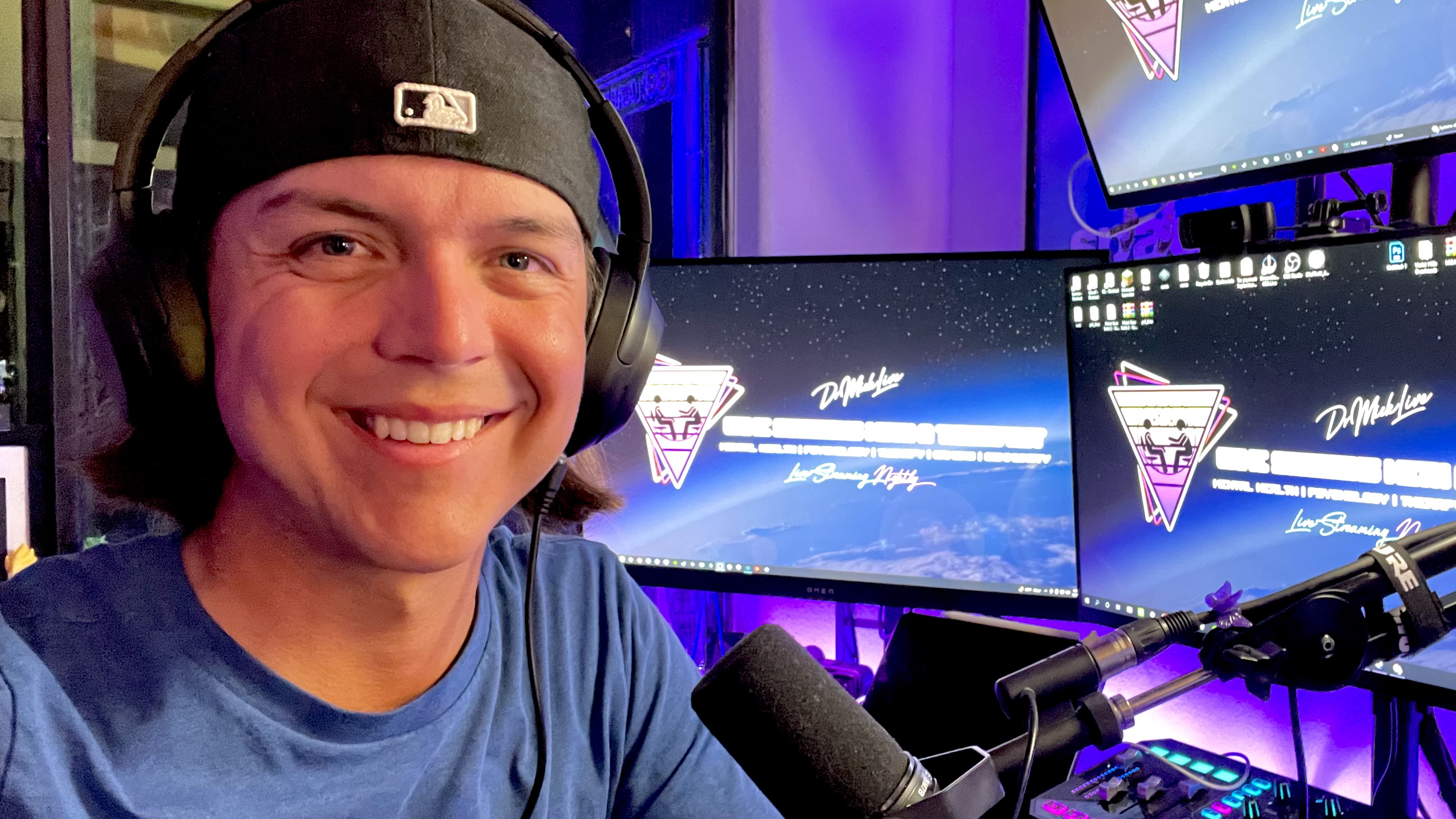
Sign up to receive The Snapshot, a free special dispatch from Laptop Mag, in your inbox.
You are now subscribed
Your newsletter sign-up was successful
I struggle with anxiety and depression — I’ve talked about it in my Life is Strange: True Colors review and my Devil May Cry 20 years later piece. I’m an advocate for talking openly about mental health, but I also have social anxiety, which, as you might guess, can be problematic for a journalist who interviews others. You normally wouldn’t catch my byline on a System of the Stars piece, but I was recently inspired by Twitch, TikTok and YouTube performer Dr. Mick.
Yes, Dr. Mick (Ryan Earl, Ph.D., LMFT) is an actual doctor and a licensed therapist. At 31 years old, he’s been practicing therapy for nearly nine years, and started hosting a show called “Game Sessions with a Therapist” as Dr. Mick since September 2018. I caught one of his TikToks while scrolling through my For You page, and saw how he broke down Jack’s mental state in Mass Effect 2. It caught my attention, but it wasn't until his playthrough of The Last of Us that his content really sunk its teeth in me. Funnily enough, it was the video where Dr. Mick broke down a simple sign that gave people instructions on what not to do as opposed to what to do — thus providing a lesson in instructing in the affirmative.
Dr. Mick not only entertains his viewers, but he takes the time to teach gamers about mental health. Every time an emotional or psychological development happens within a game, he pauses and breaks it down for people. I’ve also seen him give people advice in Twitch chats about their own struggles. It’s no secret that the vocal minority of gamers online are toxic, so seeing someone working their way to de-stigmatize mental health, especially through gaming, spoke to me on a deep emotional level.
I chatted with Dr. Mick about what sent him on his journey to help people, and we had a few conversational detours about his love for golf.
What’s Dr. Mick’s history with gaming?
Dr. Mick’s gaming journey started with opening a present on Christmas morning and finding a Sega Genesis packed with Sonic the Hedgehog 2, Altered Beast and NBA Jam.
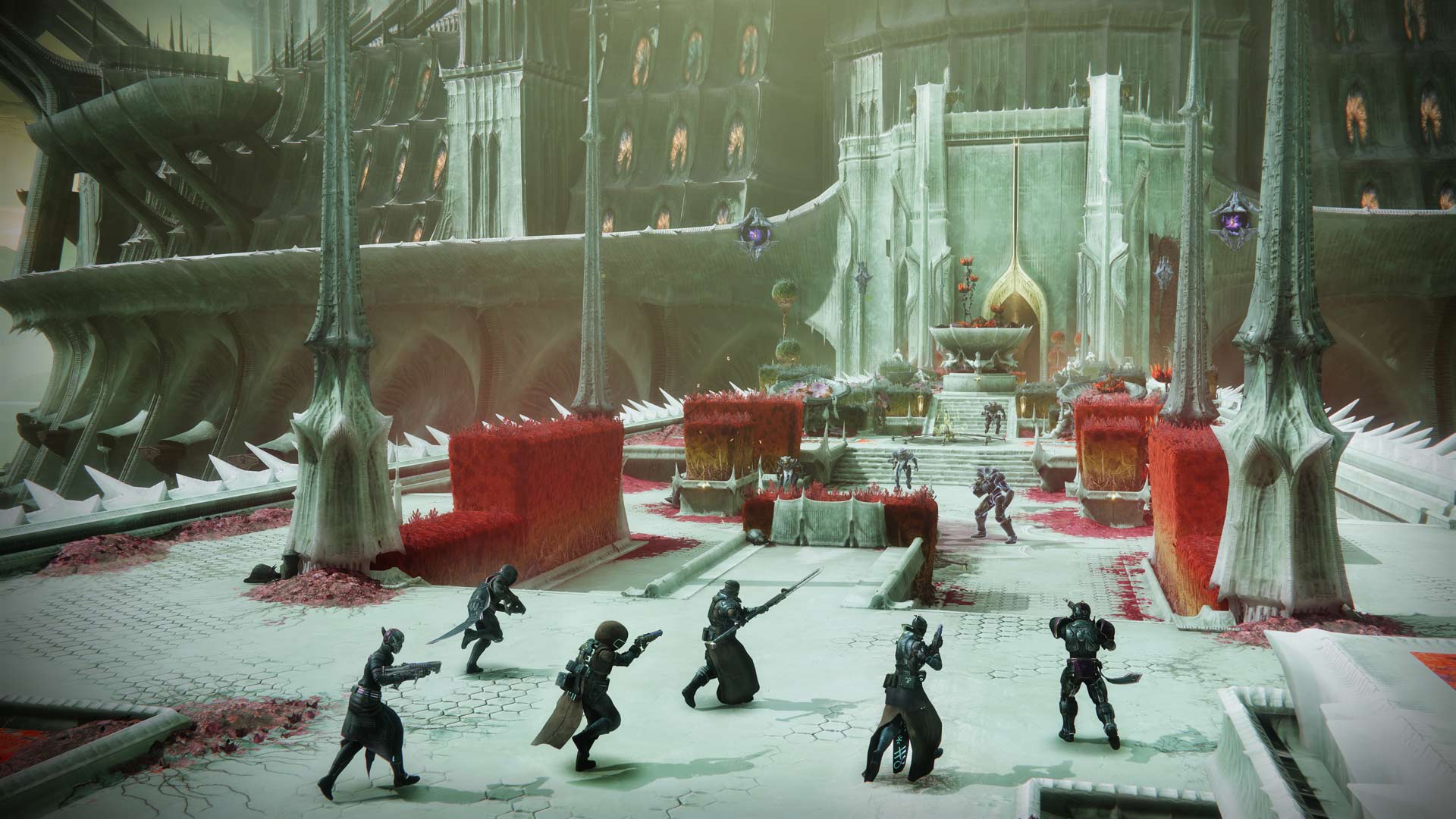
“I thought it was the coolest thing ever, I didn’t know what video games were until that showed up,” Dr. Mick said. “It’s kind of amazing that ‘Santa’ knew that I would be stimulated by video games because neither of my parents were into video games.”
Dr. Mick later solidified gaming as a huge part of his life when he got a Nintendo 64, and he told me that Star Fox 64 is still one of his favorite games to this day.
Sign up to receive The Snapshot, a free special dispatch from Laptop Mag, in your inbox.
“In college, video games helped me navigate depression,” Dr. Mick said. “I’m thankful for World of Warcraft because that got me through my freshman year of college [...] I spent more hours in Azeroth than I did on campus. Video games have always been a consistent, reliable companion for me, and all of the friends I have started with an initial connection I had over video games. I can’t really conceptualize who I am without them.”
Removing the nostalgia factor, however, Dr. Mick’s favorite games of all time are Destiny and Destiny 2. Destiny connected Dr. Mick and his girlfriend at the time (now wife) when they were in a long-distance relationship. During his doctoral program, Dr. Mick raided with his Destiny group every Saturday, which he looked forward to because “getting a Ph.D. sucks.” Destiny was also the game that launched Dr. Mick’s stream. “Destiny is just ingrained in me at this point.”
What game is Dr. Mick excited about the most?
I asked Dr. Mick what game he’s excited for the most, and while I was expecting a mental health-related answer, he came at me with EA Sports PGA Tour. For those who don’t know, that is a golf game. For fun, I asked Dr. Mick to sell me on this game.

“Golf is a game of decisions, and it’s a game where you’re really only playing against yourself," he said. "The amount of decision-making you have to make, where you have to direct your focus when you’re trying to do what you’re doing is incredible and I think maybe extends beyond any other sport I can think of. It’s not a reactionary sport. You have to visualize and then create whatever shot you’re trying to do. So video game golf is fun because you get to make shots you can’t make in real life, experience courses you can’t afford to play, and personally, my dad used to play Tiger Woods PGA Tour with me on the Sega Genesis, so it has sentimental value.”
I was hooked by Dr. Mick’s passion for golf, so I asked what makes a good golf game. He explained that he loves the realistic simulation in the sport. For EA Sports PGA Tour, it needs to allow players to experience the skill gap and progression of your character in the game, capture the course atmosphere, and add better announcers.
How does Dr. Mick feel about the PS5 and Xbox Series X?
We eventually got to talking about the PS5 and Xbox Series X. While Dr. Mick doesn’t have one yet, he’s been eyeing the PS5 in particular, but stated that, “I can wait.”
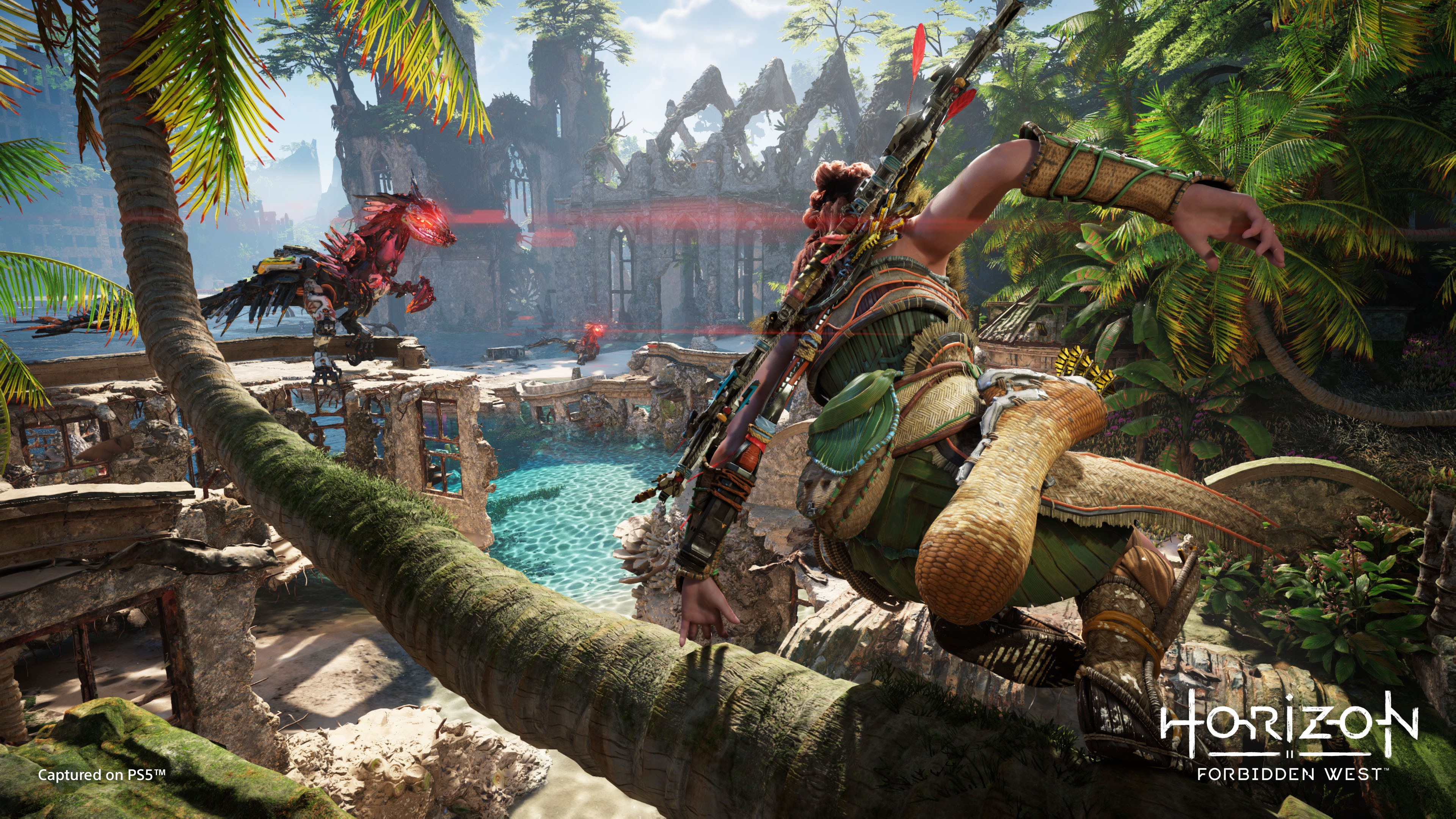
Right now, the only game in his crosshair is Horizon: Forbidden West, and he’s hoping the PS5 slims down at some point (me too, honestly). “My personal investment in next-gen is for sports games, and I fucking hate EA. I don’t understand how we move into next-gen and games have gotten worse.” I think we all know which sports games get released on a yearly cycle and either look the same or have somehow gotten worse — take Phillip Tracy’s FIFA 22 review.
“I still play NFL 2K5 on a PS2 emulator on my PC because people still update the rosters every year, and I still play that game more than I play Madden because of how feature-rich that game is, and that came out 16 years ago.”
What’s Dr. Mick’s history with therapy?
While it might seem like gaming is what got Dr. Mick into therapy, the two things actually didn’t cross paths until late in Dr. Mick’s career.
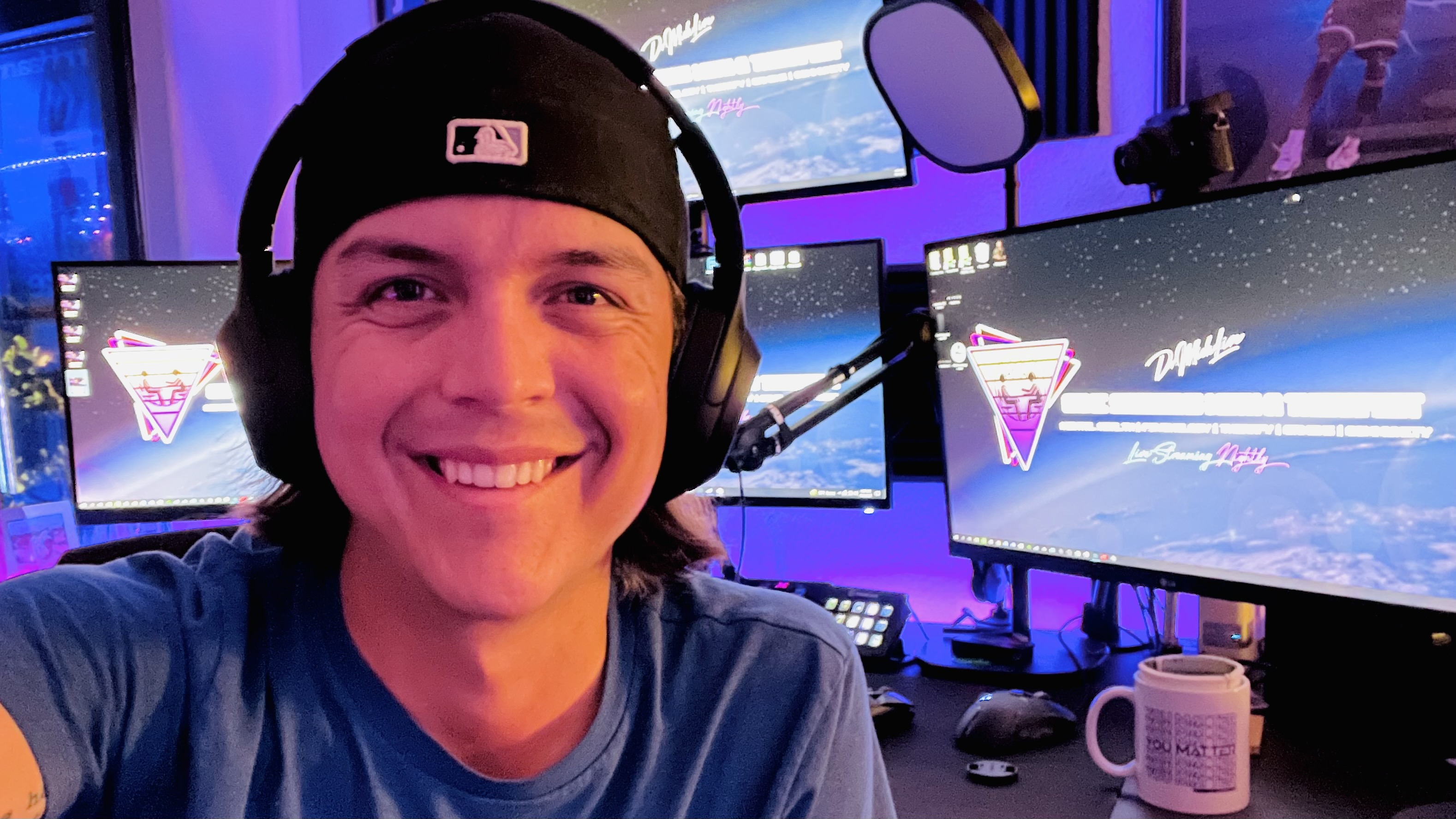
Dr. Mick originally went to school for advertising, the allure being the psychological aspect — “I thought it was cool that you could influence people through art.” However, he hated the classes, and it wasn’t until he spoke to a sociology professor that he was exposed to the idea of therapy.
“After talking to him, I realized that when I was in middle school and high school, I used to spend hours on AOL instant messenger talking to friends and people who didn’t even acknowledge me in the hallways of school,” Dr. Mick said. “They were opening up to me until the wee hours of the morning and talked to me about their problems and relationships — I must’ve been good at it because people kept doing it every night. That’s when I realized, ‘holy shit, I can do that for a living? I can literally make my living talking to people and being nosey about their relationships and helping them put that together? That seems awesome.’”
Dr. Mick was drawn by the complexity of human relationships, and he “learns something new from everybody” he works with, which is why he does what he does now.
“I went on to be a therapist, and I played video games throughout the process,” Dr. Mick said. “As I thought more like a therapist, games started to take an entirely different angle for me. Then I started to think about how I could merge these two things. The initial way that I did it was writing academic papers, and trying to help therapists understand gamers because they are so misunderstood by therapists. [...] There is so much more to video games than you could ever understand if you don’t play them, so I tried to bridge the gap that way.”
How did Dr. Mick merge therapy and gaming?
So why did Dr. Mick merge his two passions? According to him, an existential crisis.
He spent nine years in college, five of which he completed with the purpose of becoming a professor. “I was an assistant professor, and I had achieved what I thought would be my life-long career, but it didn’t have the right impact on me.” Dr. Mick said. “I felt like I was in this tube of people where I couldn’t extend past this certain realm, and I noticed that so many people didn’t understand what therapy was and how inaccessible it was.”
At that point, Dr. Mick had an urge to take what he knew about therapy and his ability to teach it, and bring it to people in an accessible way. “I actually saw a tweet from DrLupo that said ‘I’m not a therapist, I’m just a streamer.’ And I thought to myself, ‘wait a second, I am a therapist and I play games, that’s kinda interesting.’ I had never watched Twitch before I started streaming, but I said to my wife one night, ‘I want to have a bigger impact than what I have, I’m not happy with what I’m doing, and this is something I’ve been thinking about doing, and I thought that this is maybe a way that I could reach people’ and she was like ‘go for it.’”
After that, Dr. Mick hit the ground running by building his first PC and cut out time at night to stream while working 50 to 60 hours a week at his day job. One day, he did a Reddit AMA that made it to the front page over 2 weeks after starting to stream, boosting him from 16 followers to over 930 in one day. It was so fulfilling that Dr. Mick resigned his day job and co-founded a private practice with his wife to make streaming and therapy a workable reality.
“I’m doing these two things and it’s given me a platform now to educate folks in mass and use video games as the accessible medium to do that where people can understand grief or trauma a little bit better by listening to me talk about what I’m seeing in a game like The Last of Us,” Dr. Mick said. “I get comments all the time from people that are like ‘holy shit, I’ve learned so much about myself by watching these videos or TikToks,’ and that’s why I do what I do.”
Where did the “Mick” in Dr. Mick come from?
The “Mick” in Dr. Mick came from a play on his old gamertag. A friend he played golf and video games with always said he played golf like Phil Mickelson, who would “go for broke all the time.”
With his last name being Earl, his friend dubbed him “Phil Mickearlson,” and thus Mickearlson became his gamertag. “When I went to create my Twitch handle, I didn’t want to be Dr. Earl, that felt weird,” Dr. Mick said. “So I just shortened Mickearlson to Mick and went with Dr. Mick and ran with it.”
What does Dr. Mick think the best game is for teaching people about mental health?
The Last of Us I and II are the best games to teach people about mental health, according to Dr. Mick. He bought a PS3 just for The Last of Us, and explained that “I don’t know that there’s any game that I’ve ever played that fleshes out so many dynamics as well as that game does.”
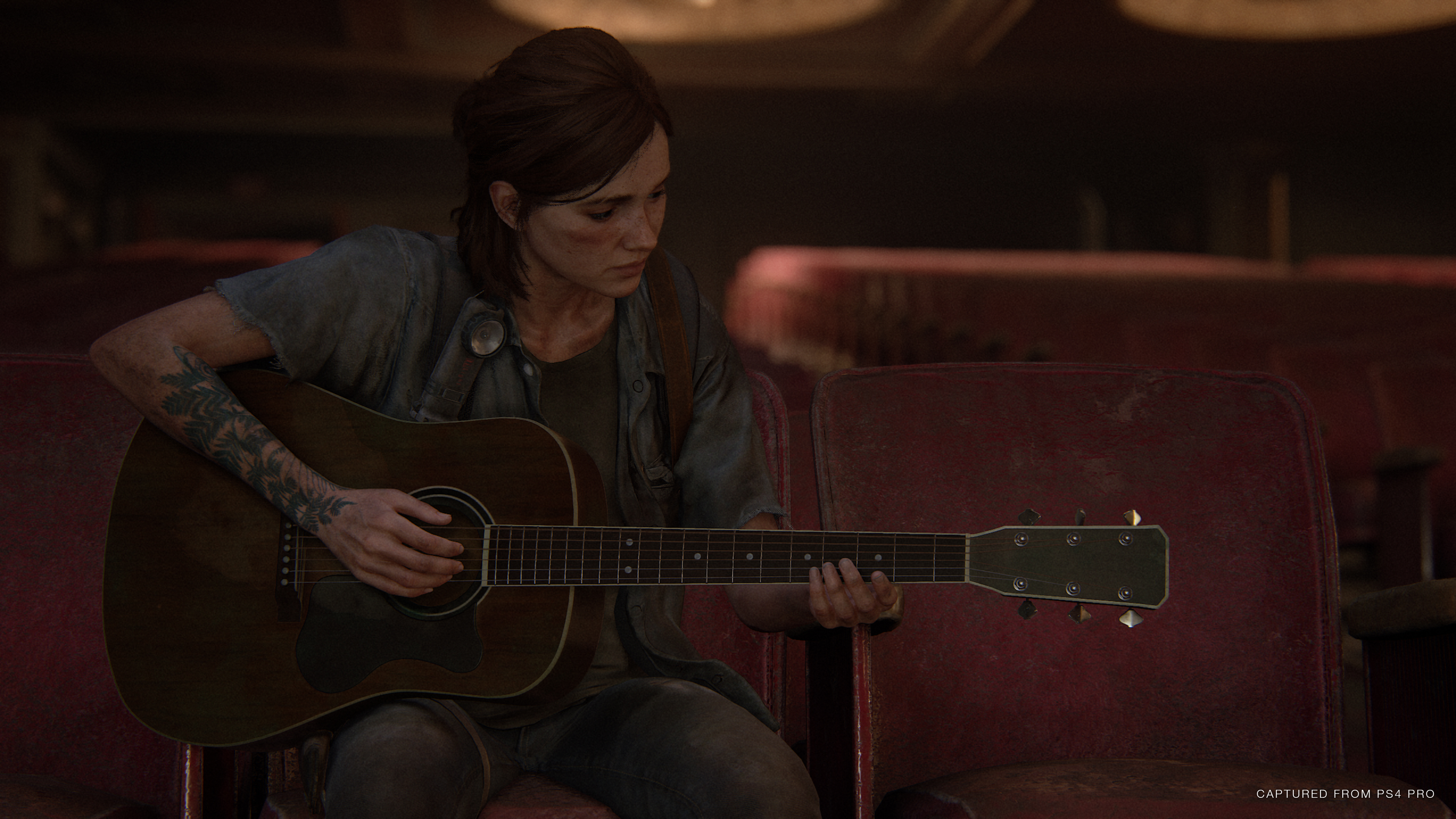
Dr. Mick wasn’t a fan of The Last of Us Part II when it first launched, but stated that “playing through it again completely changed my mind on it.” We briefly touched on the negative response from fans, stating, “I think The Last of Us Part II exposed a sense of entitlement for a lot of people. [...] If you can remove yourself and your own personal investment from it, I really think it’s a powerful game to play and bear witness to.”
How does Dr. Mick feel about how well companies integrate mental health into games?
When asked what companies are doing in regards to integrating mental health into games, Dr. Mick argued that mental health has always been present in video games. In the same way Mario is an able-bodied person, you can’t separate the mental and physical parts of a character.
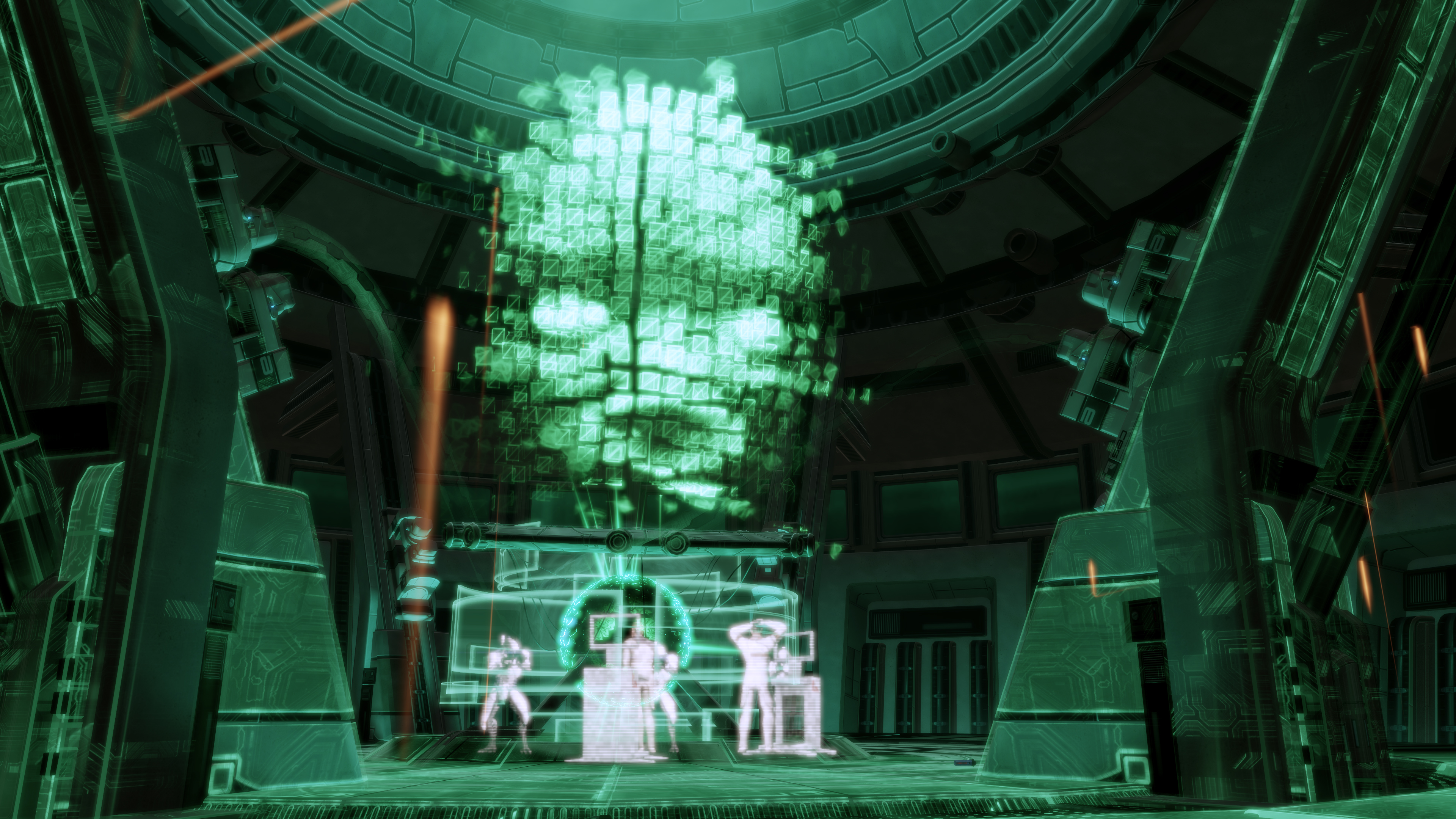
“I think it’s a good thing that certain games try to be more aware of the way in which they represent certain issues that people experience in the worlds that they create," he said. I’m all about diverse representation, but I’m also about accurate representation. I don’t like when mental illness is glamorized or used as a superpower. You do better for destigmatizing mental health and making mental health part of the conversation when you represent it accurately.”
One example of inaccurate representation is in Mass Effect 2’s David Archer. It’s one of the first few times when we’ve seen autism represented in a video game. Dr. Mick makes it clear, however, that autism is different from mental illness, and he’s not trying to conflate those two things. He goes on to explain that the way BioWare represented autism was stereotypical in that the developers used David’s autism as a plot device.
What’s Dr. Mick’s take on predatory tactics from game developers?
Dr. Mick and I ranted a bit about how we hate games that generate revenue via predatory tactics. I wanted a more psychological look at the issue, especially since UK Members of Parliament called for the regulation of loot boxes under current gambling legislation only a few years ago.
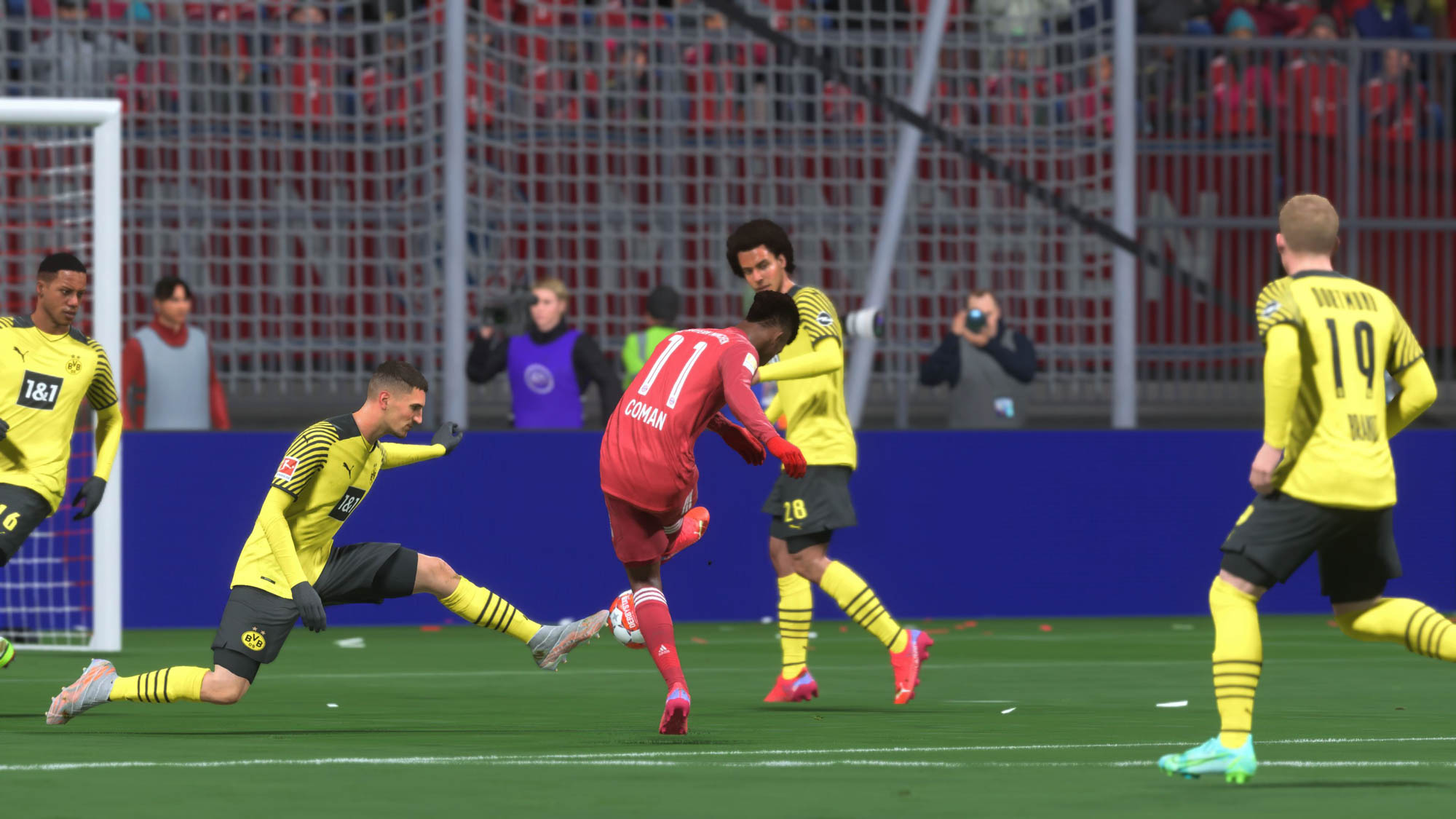
Dr. Mick explained that giving up your cost sunk is a very hard thing for humans to get out of, so companies like Rockstar and EA put forward a desire to keep up. If it costs something like $5 to get a new item, people are more compelled to do it if they’ve already spent so much effort in the game already.
“You have a clash of accountability. There’s an argument to be made that game developers need to do a better job of making sure their system itself is not predatory and is something that is not going to cause distress to somebody if they don’t pay to advance,” Dr. Mick explained.
“And then there’s the camp of people that hold gamers accountable, saying ‘don’t play the game.’ There’s validity to that. There is power in the masses, but video games are something that many of us are invested in. I would love to play EA Sports PGA Tour on a dark night where I can’t play golf myself, so I’m going to buy into the game because they’ve made it available to me, but then they’re going to wallop me with awful shit.”
Dr. Mick finished his point by explaining that there’s a tension between those two groups, but that it’s really on both groups to be accountable. Gamers need to hold companies accountable for predatory practices and companies need to ensure what they’re using is not predatory in nature.
“We can certainly hold people responsible for their behaviors, but we also have to take into account that we know that there’s research out there that shows that people are susceptible to this and vulnerable to these kinds of practices,” Dr. Mick said. “No matter how much you want to preach personal accountability, literally everybody is susceptible to it, even people who research it, and that’s the thing that’s really scary.”
What kind of tech is Dr. Mick rocking behind the camera?
As part of our System of the Stars series, we ask celebrities what sort of tech they use at home. “I had no idea what it took to have a setup that streams at high quality. I started with one PC that I built, and I had no idea what encoding was, what bitrate was, what OBS was, what the difference between CPU and GPU encoding was, or how taxing streaming and gaming at the same time on one PC was. I piecemealed this thing together,” Dr. Mick explained.

After spending three years figuring everything out, Dr. Mick finally built his ultimate rig. There are two PCs hiding behind the camera. The gaming PC sports an Intel Core i9-9900K CPU, Nvidia GeForce RTX 2080 Ti GPU, 32GB of RAM, and three 1TB SSDs packed in an Asus ROG Strix Z390-E motherboard powered by a Corsair RM850x PSU.
Attached to that PC, you’ll find a GoXLR Mini to monitor and capture audio, a Logitech G915 Wireless Clicky keyboard, a Logitech G903 Lightspeed gaming mouse, a GoPro Hero 9 Black camera and a pair of Sony WH-1000XM4 headphones. To bring it all to life, Dr. Mick has a Dell Alienware AW2521HF 24-inch monitor (1080p, 240Hz) and the Dell S2716DG 27-inch monitor (1440p, 144Hz).
Meanwhile, the streaming PC rocks an AMD Ryzen 9 3900X CPU, an RTX 2070 GPU and 32GB of RAM in an Asus ROG Strix X570-F motherboard powered by an Corsair RM850x PSU.
Connected to that PC is a Shure SM7B and GoXLR to monitor and capture audio, an Omen Spacer Wireless keyboard, a Logitech G502 Hero gaming mouse, an Elgato Stream Deck 15-Key and a Scarlett Solo guitar input. Inside the PC are two Elgato HD60 capture cards, an Elgato 4K60 MK2 capture card and an Elgato Cam Link. For the official camera, Dr. Mick uses the Panasonic LUMIX GX85 mirrorless DSLR, and uses an Elgato Key Light Air for lighting. As far as the monitors go for this PC, he has a Omen 27i 27-inch monitor (1440p, 165Hz) and a LG 27GL850 27-inch monitor (1440p).
That’s a whole lot of tech to get streams to run as efficiently as possible. It can be daunting, but keep in mind that Dr. Mick didn’t do it all in one shot. “It gets really hot in this room,” Dr. Mick laughed.
What is the most vital piece of tech in Dr. Mick’s set up?
“Stratospheres ahead of every other piece of the stream is the audio equipment,” Dr. Mick said. He explained that people easily bail on streams if the audio sucks. As long as you have decent audio and can monitor yourself and what you’re doing, it’s the most important part of streaming.
“I spilled water on my GoXLR during the pandemic and I cried,” Dr. Mick said. “I was terrified it was going to fry, luckily it didn’t, but that was the worst moment of my entire streaming career because there was no way I was getting another one at the time that it happened.”
As far as Dr. Mick is concerned, everything else comes second. Audio is not only the key pillar for Dr. Mick’s stream, but it also helps him connect more easily with his clients during therapy sessions.
“If I ever need to do more than just have people hear what I’m saying, having the audio set-up that I currently have is huge for that,” Dr. Mick said. “I want to create an experience for someone in therapy as close as possible to seeing me in real life as I can.”
What games does Dr. Mick recommend to people struggling?
“If you notice that playing a game is creating more distress than alleviating, it’s probably not a good idea to be playing it,” Dr. Mick said. “If you notice that playing a game is allowing you to experience some sort of relief, particularly if that relief is long term, then I would say it’s a worthwhile game to play.”
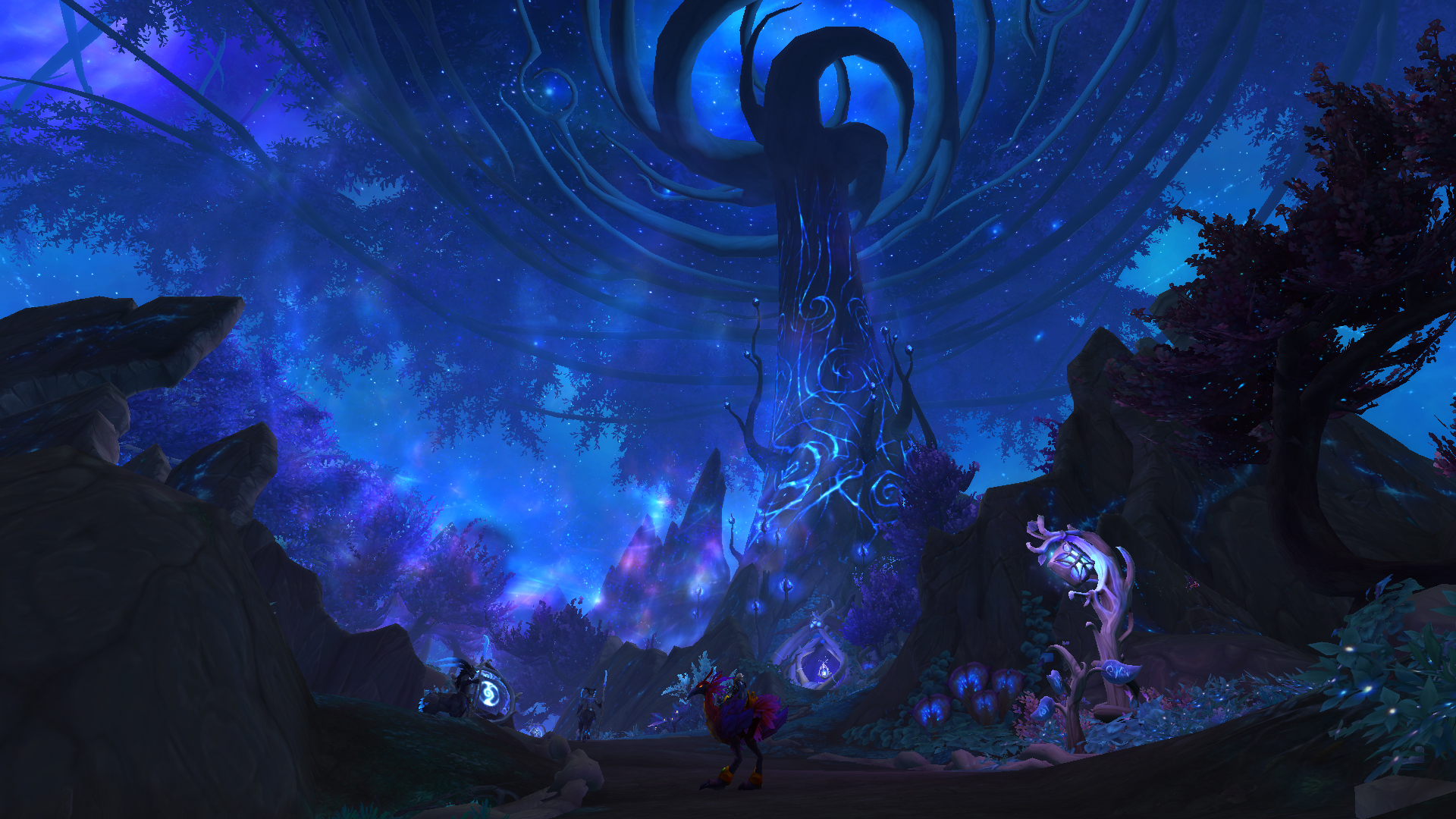
According to Dr. Mick, the tricky thing about people with anxiety who play video games is that if you use video games as an avoidance coping mechanism, you’re making anxiety worse in the long run. People over-immerse themselves in video games because if they stop, they’ll have to confront their issues.
“I dealt with this with depression when I was a freshman in college,” Dr. Mick said. “As soon as I signed off World of Warcraft, I was back to being depressed again, and if you’re not careful, any game can be that for a person.”
Dr. Mick explained that it’s not about the games you play, it’s about the way in which playing games affects your experience of yourself and the latent consequences of the gaming’s role in it.
“I would have been miserable without World of Warcraft, but I was also miserable longer than I needed to be because of World of Warcraft, and I think it’s a very important distinction for people to understand.”
What tech does Dr. Mick think people should avoid?
“Social media is toxic to anybody who’s currently struggling, and I say this as a person who creates content for social media,” Dr. Mick said. “I think people who are struggling that spend too much time in areas where there are misrepresentations of what it is that they’re struggling with are actually doing worse by themselves.”
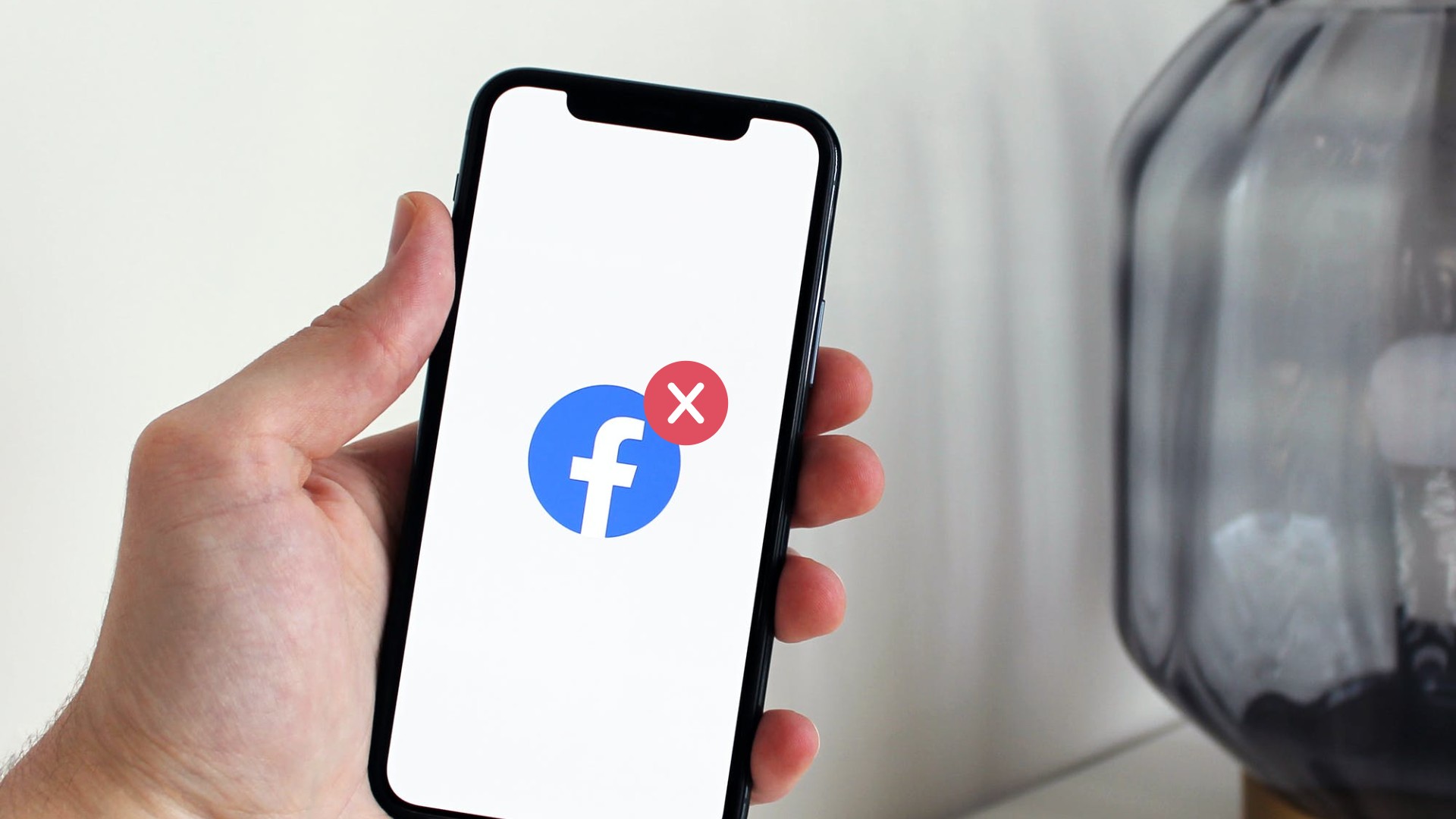
According to Dr Mick, it's not good if you are continuing to consume things that create distress because you’re worried about what’s going to happen if you don’t consume it. Social media can have a “horrific impact” on your mental health when you’re not using it in a way that feels controlled.
“When I got rid of Facebook in Winter 2017, I remember for a good two weeks afterwards, whenever I would open my phone, the first thing I would do is hit the app that took the place of where Facebook was on my screen,” Dr. Mick said. “When I opened up my browser, I’d look for Facebook just to click on it. It’s wild the way that that stuff gets ingrained into you.”
He explained that if there are any technological mechanisms that allow you to limit your social media, use them.
What games or tech has improved Dr. Mick’s own well-being?
“Destiny has helped connect me and my wife, it gave me something to look forward to and stuff to chase,” Dr. Mick said. “That was the instrumental part of getting me through a long-distance relationship and buffering the immense amount of stress that a Ph.D program is.”
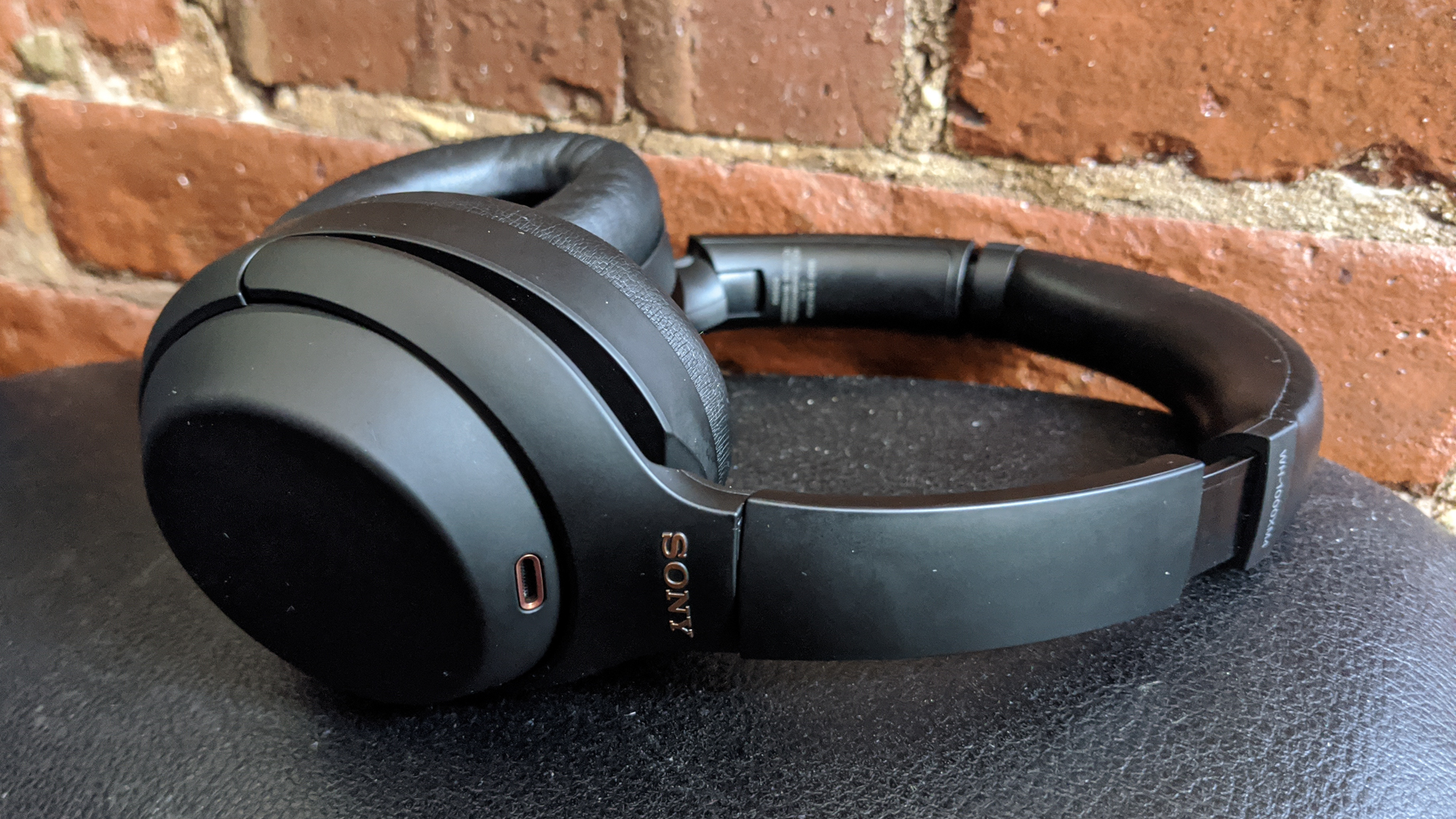
Streaming has also helped his mental health. Playing through each game on stream, being able to connect to people, and explain the processes of each character’s decision is something that he not only does to help people but to also improve his own well-being.
I also asked him about what piece of tech helped him in his life. He jumped from general audio equipment to nerding out about his GoPro Hero 9 and explained how he uses it for “shot analysis” in golf. That’s when I knew he isn’t just a fan of golf, he is a golfer. (There was a small tangent later in our conversation where he explained the entire process of shot analysis, which blew my mind, but I’ll spare you the overload of golf trivia). However, Dr. Mick settled on his Sony WH-1000XM4 headphones, stating that it’s “bar-none probably the best thing for my mental health.”
What are some things Dr. Mick has learned mental-health wise while streaming?
“How powerful parasocial relationships are,” Dr. Mick said. He went on to explain that parasocial relationships are a pseudo relationship a person has. Viewer to streamer is the most clear example. So for example, Dr. Mick is interacting with 150 to 250 people at any given time, and all he sees is text, but people who are watching are seeing Dr. Mick engage with them. Therefore, there’s a sense between them that their relationship goes beyond “I know who you are.”
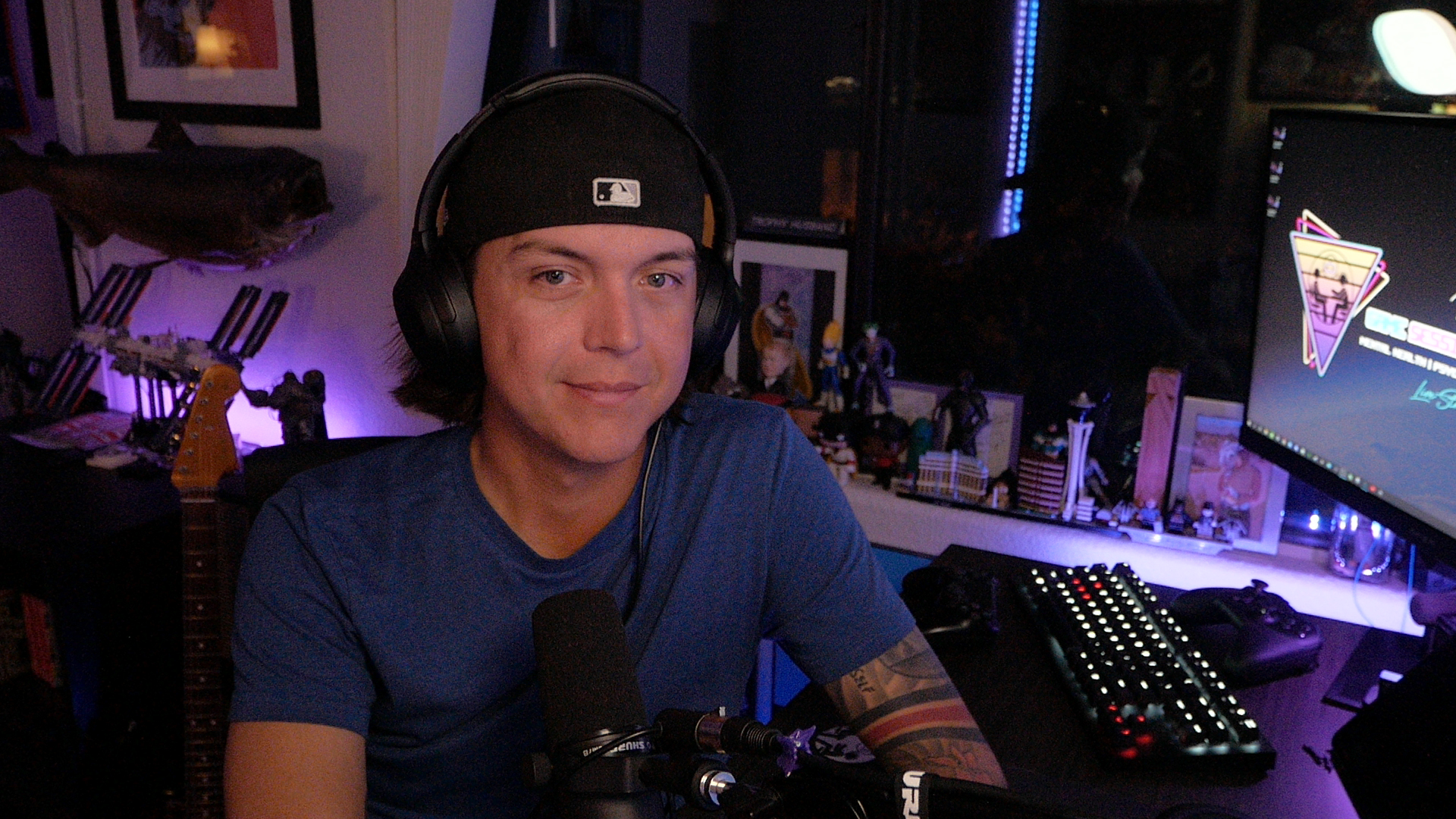
“It leads to people not understanding the inherent boundaries that are present in this type of relationship,” Dr. Mick said. “Despite the fact that I am camera-facing, and that I am talking as candidly as I can, I am also performing when I’m streaming. You’re not getting me as I am — I’m actually a pretty reserved, relatively quiet person when I’m in the world.”
According to Dr. Mick, when people start to idealize people and celebrities, they start to feel like they have entitlements in that relationship that they don’t actually have. So what do you do in that situation? Dr. Mick says that you need to not only set boundaries but set hard boundary decisions.
“I ban people very easily if they’re a person that says some dumb shit,” Dr. Mick said. “But if a person that has watched the stream for a long time starts to feel like they have a relationship with me in their mind that goes beyond the boundary of what our relationship is, I have to assert that boundary and say: ‘look I stream, I’m glad you find what I do to be meaningful, but I’m not your therapist, I’m also not your friend, I appreciate you, I appreciate you’re a part of my community, but that kind of request or thing is not appropriate and if you continue to do it, I’m going to have to kick you out.’”
Streamers may be afraid to set those boundaries because it seems antithetical to building a community, but in reality, trying to keep everyone on-board makes things worse for your community. If you allow people to stay on because you’re going for quantitative metrics over qualitative metrics, “you’re going to be in trouble as a streamer.”
What can fans of Dr. Mick expect him to play next?
Dr. Mick is already on the grind, jumping from The Last of Us Part II to Detroit: Become Human, but what comes next on Game Sessions with a Therapist?
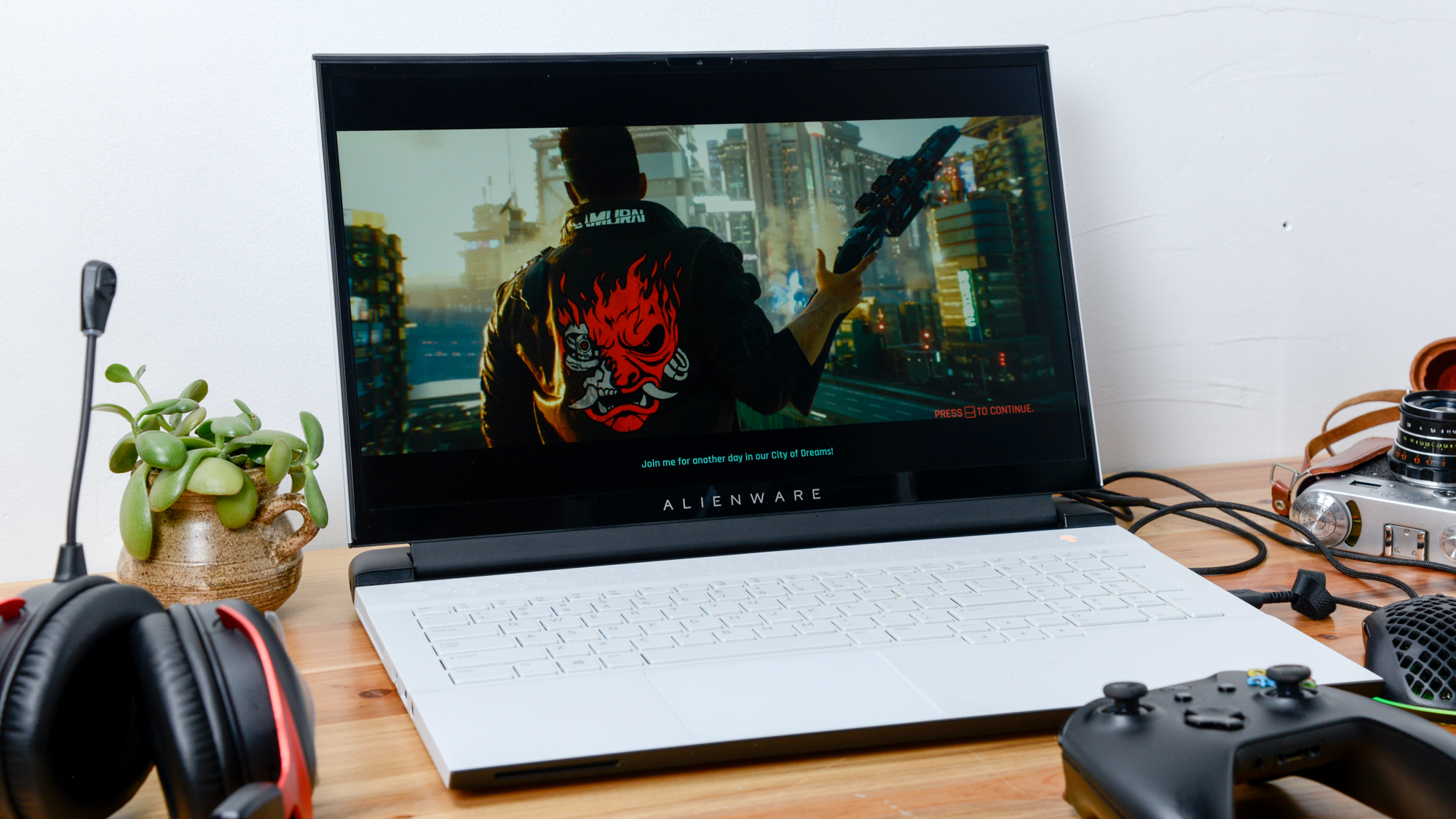
After Detroit: Become Human, Dr. Mick plans on taking a trip down to the old west, playing Red Dead Redemption 2, and at some point, crossing over to the future with Cyberpunk 2077. According to Dr. Mick, we might also see The Witcher 3, Dragon Age: Origins and Inquisition, Days Gone, and the Knights of Old Republic remaster when it launches.
“When I’m streaming, I am looking for games that allow me to generate content that’ll be useful for people that watch me, and the number one game that gets requested is God of War,” Dr. Mick said. “It’s actually not a game that produces as much content as people think. I think a lot of people look at that game and see Kratos and Atreus, and think ‘wow, that must have a lot of content,’ and it doesn’t. There might be five times in the game where I could illustrate something, but the rest would just be me playing the game.”
On whether he'd consider doing shorter videos of fan-favorite games like God of War and Death Stranding, he said, “If I ever ran out of games to play to generate content, that would certainly be something I’d be open to doing.” So there’s a chance, folks. Although, removing those small moments without context would be a completely different flow of how his content is currently presented.
What is Dr. Mick’s dream gaming laptop?
We save the best for last, as this is our favorite question on System of the Stars, where we get to ask our guest about their dream console or laptop, and Dr. Mick happened to describe one of the more reasonable, but still epic, laptops. The is the ultimate streamer laptop:
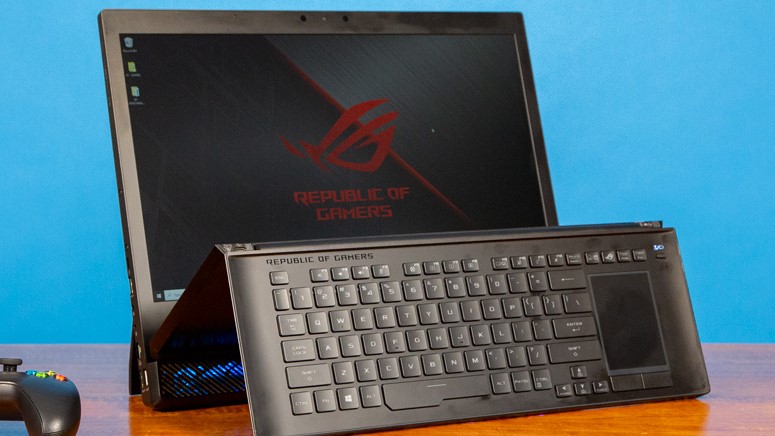
"I want a laptop that unfolds into a three PC setup with a monitor for each,” Dr. Mick said. “It would be a gaming laptop, a streaming laptop and a recording laptop. All three are humming at the same time, already interconnected. Add a capture card in the streaming one to plug an external source into, a separate dedicated keyboard for all three, and have everything modularly built-in. Instead of having to buy a new set up, I want a subscription where you receive new parts to add into the machine. If I want to stream and I’m out or on vacation, I can set that up and I’m ready to go and stream without worrying about quality.”
Interestingly, this is a more realistic product than I was expecting. In 10 years from now, I can envision this laptop being real, especially since something like the Asus ROG Mothership exists. Dr. Mick also requested for RAM that can just be downloaded, which seems less likely — but hey, you never know.

Rami Tabari is the Reviews Editor for Laptop Mag. He reviews every shape and form of a laptop as well as all sorts of cool tech. You can find him sitting at his desk surrounded by a hoarder's dream of laptops, and when he navigates his way out to civilization, you can catch him watching really bad anime or playing some kind of painfully difficult game. He’s the best at every game and he just doesn’t lose. That’s why you’ll occasionally catch his byline attached to the latest Souls-like challenge.

